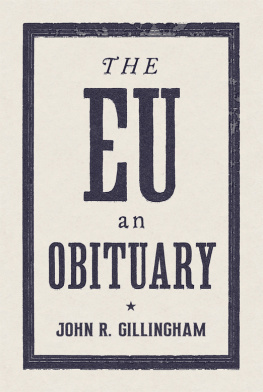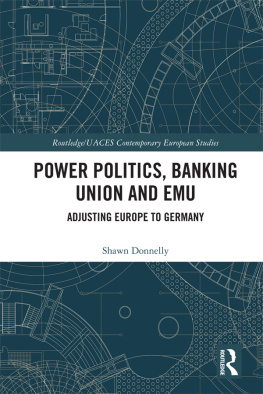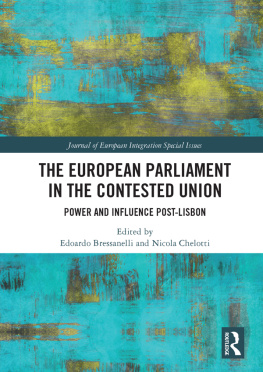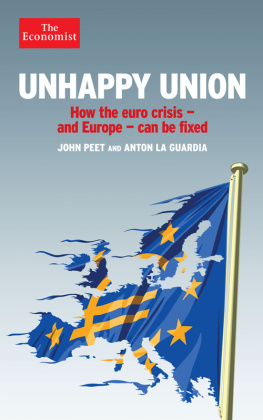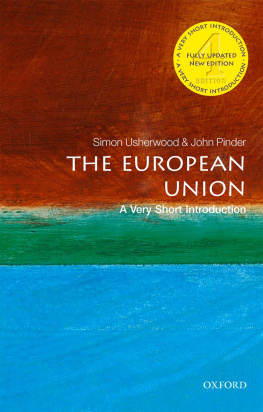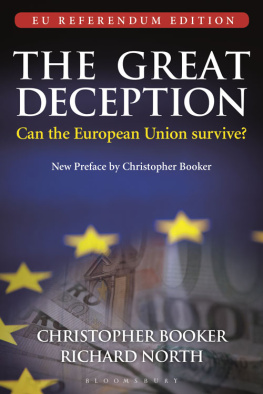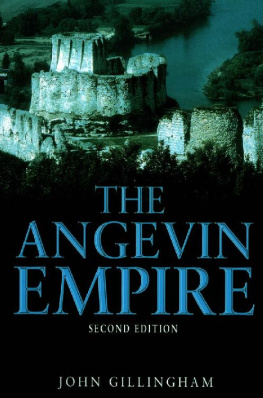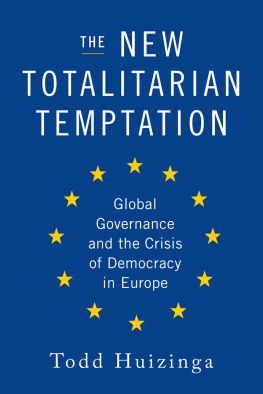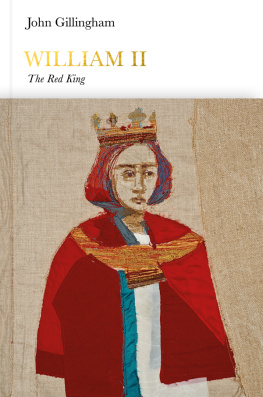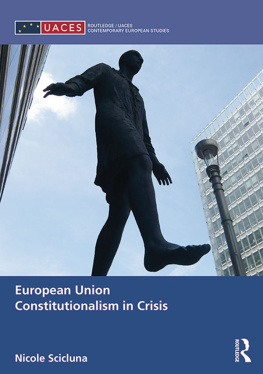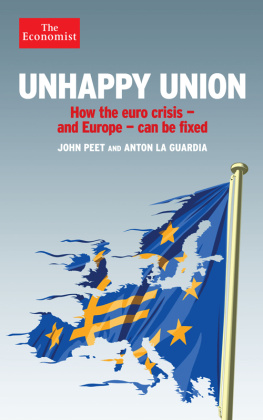Introduction: A Re-examination
of the European Union
The present crisis of the European Union makes it painfully evident that the history of the EU must be re-thought, re-cast, and re-written. More is at stake than merely setting the record straight. At one and the same time vast and parochial, the existing research on the EU not only defines the current intellectual parameters of the subject and provides the language that shapes discussion: it also establishes the contexts of policy-making, guides political action, and opens new sources of legitimacy.
This is the case for two special reasons. Directly or indirectly, the European Union has funded the bulk of the scholarly literature written about it. For most of its life, and even down to the present, the EU has also been the beneficiary of an ideology of Europeanism a secular faith that it is an ordained agent of human progress. The many scholars, commentators, assorted experts, and like-minded journalists who have spent careers doing EU research, are nearly all devotees of the Euro-cult. To be sure, they can at times be critical and in light of current events are more so than previously but only for the most part in order to better serve the cause. Doubters are still unwelcome. Such heretics have yet to make serious inroads into the legacy of EU scholarship. The makers and shakers in Brussels have stood, and still stand, behind the massive establishmentarian intellectual enterprise, and symbiotically profit from it. The same cannot be said for the rest of us. The loop between thinkers and doers must be broken if real progress is to be made in reforming the EU and in dealing with its legacy.
Three influential theories have sustained belief in the EU as something historically transcendent; while all differ fundamentally in the interpretation of the integration process, each posits a similar teleological outcome: a federal Europe. None of them has much purchase. Nevertheless, an alternative paradigm has yet to replace them. The earliest and most prominent among such conceptual approaches, functionalism, holds that European integration, once set in motion, would have spillover effects that carry over from one economic or political sector to another, eventually pervading the body politic. One might have expected this process to move predictably forward over time, yet this has never been the case. Progress has been at best sporadic and at worst absent for prolonged periods. The author of functionalist theory, which dates from the 1950s, the political scientist Ernst Haas, later repudiated it; recent revival attempts, no matter how desperate, have got almost nowhere.
A second theory, liberal intergovernmentalism, developed by another political scientist, Andrew Moravcsik, in the late 1990s, explains the integration process as the outcome of optimal bargains struck between state actors. He has little to say about how institutions operate and nothing about their possible failures. He tells a success story. It is hard, in light of the EUs plight, to take the notion seriously.
A third reigning approach is somewhat different in character. Formulated in the early 1990s by the historian Alan Milward, it maintains that the integration process is best understood as a necessary and beneficial strengthening of the welfare state and, as later elaborated, further posits, as the other theories do not, that the EU will develop from an elitist into a mass project. The connection between Milwards two theses and the contours of actual EU history (and that of its predecessors) is only incidental. Convictions die hard. To summarize the discussion, all three outworn theories rest on serious misperceptions that beg for correction.
This inquiry into the EUs history will make no triumphalist presumptions. It will instead reassess the EUs past in an effort to discover what went wrong, how it might yet be righted, and what might come next. One must, at the outset, view the subject from outside-in rather than, as previously the case, from inside-out. An epiphenomenon of stronger historical forces, the European Unions growth and development has, by and large, occurred exogenously through international drivers of change: intermittently by shifts in superpower relationships and continuously by the seemingly inexorable expansion of world trade as mediated through new global economic, political, and organizational contexts. This force, and not the EU, is the prime mover of the integration process.
The gradual erosion of the power inherent in national and regional political institutions, as well as their supersession by ever-larger and deeper markets, is closely related to the ever-increasing flow of imports and exports. The growth of international trade reflects the development of an increasingly dense and complicated interdependence between states and corporate institutions; within such institutions themselves; and between markets and institutions. The trend has constituted, and continues to pose, a growing threat to bureaucratic EU system-builders who, put on the defensive, have raised political stakes in a futile effort to dam the tide. Europe suffers as a result.
As for contexts, the original one was the setting of postwar Europe, whose most significant features were the American Grand Design, the revival of Germany as well as Europe, and the Cold War. The next context resulted from the so-called monetary regime change the breakdown in the 1970s of the Bretton Woods world financial system, which had been set up in the final months of World War II and was anchored in the Dollargold standard. The collapse of this system ushered in an era of neo-liberalism as well as, regionally, the two-edged sword known as the Single European Act of 1986. Its sequels were the conclusion of the ill-conceived Maastricht Treaty (1992), the launching of an abortive constitutional project, and the fatal decision to adopt the euro as a single currency. The cyber revolution provides the context in todays crisis Europe. Together with the revival of China and India and their return to the mainstream of world history, it presents immense technical and geo-political challenges to a European Union debilitated by a loss of authority, archaic operating methods, and bad judgement.

